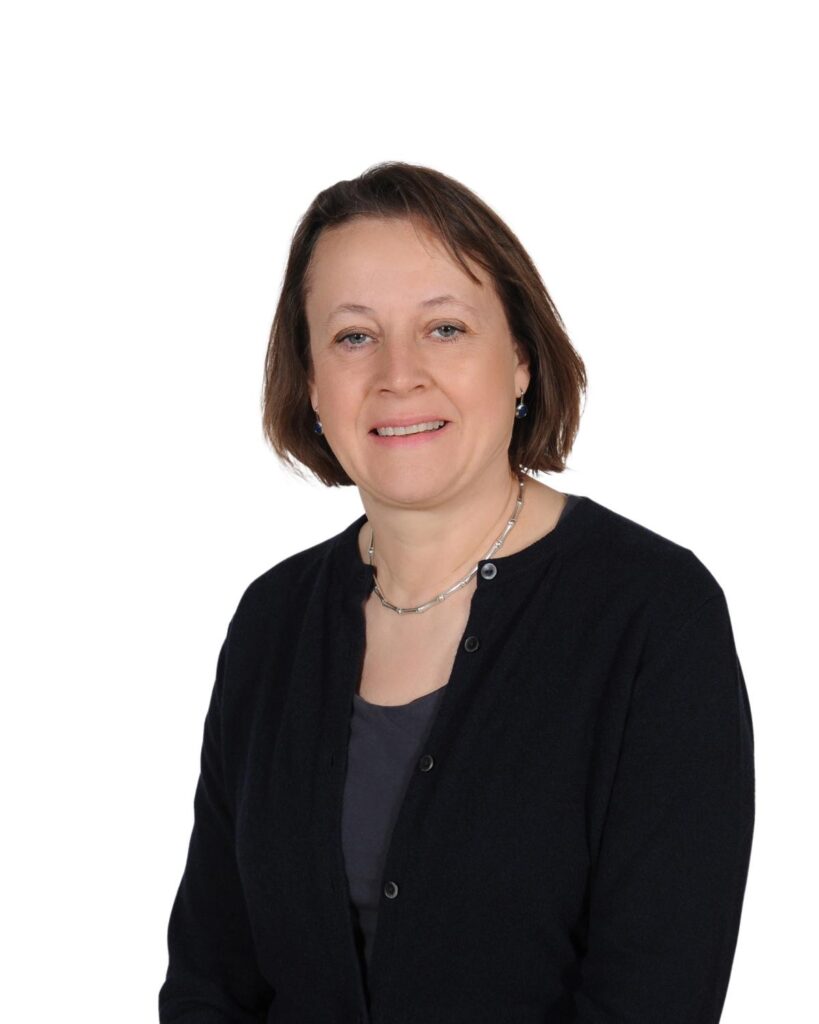Hospital boss outlines plan to support her ‘exhausted’ Royal Surrey family

Wrap-around support for worn-out NHS workers is at the centre of a Surrey hospital’s strategic vision for the year ahead.
In conversation with Newcross Healthcare’s Voices of Care podcast series, Louise Stead, the chief executive of Royal Surrey NHS Foundation Trust, says the impact of the pandemic has left a legacy of exhausted workers who now find themselves depleted in number and under growing pressure to clear the patient backlog.
She said: “Coming out of the most emotionally stressful time for staff, we’re now asking them to work even harder. And I think we were really conscious of how we needed to support staff. So we’ve got four pillars that we’re looking at around that, looking at physical health, mental health, social wellness and also financial wellness.”
This means ensuring that hospital staff have access to occupational health whenever it is needed and to online mental health support around the clock.
The hospital, one of the country’s leading specialist cancer centres, has also introduced hardship funds to alleviate the impact of the cost-of-living crisis and to discourage staff from leaving.
She said: “All of those things are real issues, particularly when you live in quite an expensive part of the world. In Surrey, you have to get to Guildford and, ten miles up the road you would get inner London weighting. So what’s going to make us more attractive is that support we wrap around our staff.”
“[We] talk a lot about being a Royal Surrey family and I think that that’s very important. I think we do have a level of support that I’ve not seen in other Trusts that I’ve worked in.”
Asked about the impact of on-going industrial action by NHS staff including nurses, and junior doctors, she said:
“It’s definitely going to have an effect on patient care. And you can see that at hospitals where their nursing staff have been striking. The Royal Surrey staff didn’t vote in enough numbers to strike, but that doesn’t mean they’re not sympathetic with their colleagues.
“But it will take a real change, I think, in policy, people getting around the table, trying to work out exactly what they can do to encourage nurses back into the profession and back into thinking it is the right thing to do and it’s a job for the future. So it’s not just about pay, it’s about conditions, it’s about so many other things.”
On the concept of “virtual wards”, where NHS patients are treated in their own home with technology used to manage their care, she said:
“I think [they] will make a massive difference. We’ve got very small numbers of patients in our virtual ward and the care they’re getting at the moment is probably the best care anyone’s ever getting because everyone does want this to succeed.
It will be difficult scaling it out. But I think we’ll learn as we go along.”
Elsewhere on the podcast, the Royal Surrey boss who has just been named one of the 50 pre-eminent leaders in the NHS by the Health Service Journal, discussed the Trust’s use of robotic surgery and artificial intelligence.
She said: “We have a collaboration with Google that’s looking at the efficiency of looking at mammograms. And we’ve got some plans in play at the moment, particularly around looking at AI, directing patients in positioning for radiotherapy. And you would expect with being a cancer centre, we’ve got another project underway which is looking at not just the outcomes, it’s looking at behavioural models and AI as patients go through chemotherapy.
Mrs Stead also revealed a new initiative that encourages members of staff to pitch their own ideas for improving working practices: “We have a great scheme called Bid for Better. So any of our staff can come and say, I can make this better if you give me a bit of seed funding. It’s sort of a Dragon’s Den for the NHS, but on a very small scale. And people really like that, they really like to say, actually I could make this better.”
Hosted by healthcare expert Suhail Mirza, the podcast episode featuring Louise Stead is available now alongside previous episodes in the series on various platforms including YouTube, Apple, Spotify and the Newcross Healthcare website.




